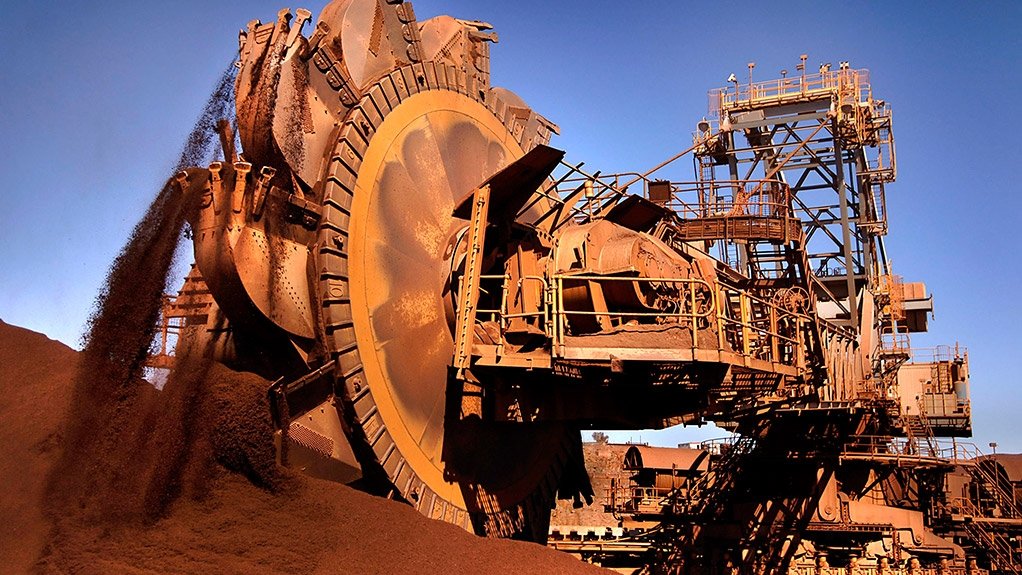PERTH (miningweekly.com) – Diversified major Rio Tinto has revised its full year production guidance for iron-ore and coal, as rail maintenance in the Pilbara and Cyclone Debbie in Queensland, took their toll.
During the three months to June, Rio Tinto produced 79.8-million tonnes of iron-ore from its Pilbara operations and shipped 77.7-million tonnes. This was up by 3% and 1% respectively on the previous quarter.
“Iron-ore shipments were impacted by an acceleration in our rail maintenance programme following poor weather in the first quarter,” said Rio CEO Jean-Sebastian Jacques.
For the full year, Rio expects iron-ore shipments to reach 330-million tonnes, subject to weather conditions, compared with a previous guidance of between 330-million and 340-million tonnes.
Meanwhile, hard coking coal production during the June quarter was down 2% on the previous quarter, to 1.5-million tonnes, while semi-soft coking coal production was down 36% on the same period to 616 000 t, and thermal coal production was up 17%, to 4.9-million tonnes.
Rio on Tuesday downgraded its full-year production expectations for hard coking coal from between 7.8-million tonnes and 8.4-million tonnes, to between 7.2-million tonnes and 7.8-million tonnes, owing to the impact of Cyclone Debbie.
The guidance for semi-soft coking coal production has remained unchanged at 3.3-million to 3.9-million tonnes, while thermal coal production would be between 17-million to 18-million tonnes.
However, the miner noted that the coal guidance may be adjusted depending on the timing of the completion of the Coal & Allied transaction, with the company last month confirming Yancoal Australia as the preferred bidder for the business unit, and backing a A$2.69-billion offer from the company.
Meanwhile, bauxite production reached a record 12.8-million tonnes during the June quarter, up 14% on the previous quarter, following record production at both the Gove and Weipa operations.
Production at Gove was 27% higher during the June quarter owing to continued debottlenecking of capacity, while production at the Weipa project recovered after severe weather conditions in the previous quarter.
Aluminium production for the second quarter remained unchanged from the first quarter at 888 000 t.
Copper production during the three months to June was up 48% on the first quarter, to 124 700 t, as the Escondida mine, in Chile, ramped up production following a labour strike in the first quarter of the year.
Edited by: Mariaan Webb
Creamer Media Senior Deputy Editor Online
EMAIL THIS ARTICLE SAVE THIS ARTICLE
ARTICLE ENQUIRY
To subscribe email subscriptions@creamermedia.co.za or click here
To advertise email advertising@creamermedia.co.za or click here













